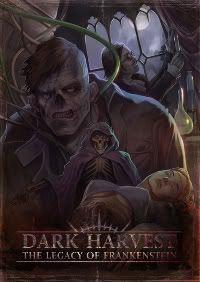Like an occasional table, only with people.
The very wonderful Mortmere, a British chap who lives within the borders of Romania itself, approached us a little while back with a brilliant idea to do a series of character ‘sketches’ of actual Romanian people from the time covered by DH:LoF. We jumped at it, and the first piece appears below.
We’re going to post them one at a time here but, once we have a selection of them, we’ll put them all together as a small file for you to download (in the Downloads section, of course). In the meantime, here’s the first piece.
————-
Dimitrie Gerota was born in Craiova in 1867, and entered medical school in Bucharest in 1886. After graduation he studied further in Paris and Berlin, returning to Bucharest to practise as a surgeon and lecture at various institutions. From 1897 he also taught at the School of Fine Arts. His most famous student, Constantin Brâncuși, remembers how he would draw exquisite lightning sketches in coloured chalk as he talked, to illustrate certain points of human and animal anatomy.
Brâncuși and Gerota were both from Craiova, and the young sculptor had been given a letter of introduction to the eminent surgeon when he set off for art school. In 1898 student and professor collaborated on an anatomical study, a sculpture called the Flayed Man, which has since become an icon of Romanian art and science; plaster casts of it are still used in medical schools around the country.
In the same year Gerota published a standard work on the new technology of “Röntgen Rays” or X-rays, and he was the first Romanian radiologist. Later in life, he had to have a hand amputated because of the poor safety procedures in early X-ray work and the effects of frequent, heavy radiation exposure.
In real Romanian history Gerota was highly critical of King Carol II and was repeatedly arrested in the 1930s.
How could he feature in the game?
Gerota is a marvellously ambiguous figure in the world of Promethea; on the one hand, he seems devoted to the supposed ideals of the state, scientific advances, progress, industry and philanthropy (in the real timeline, he founded his own clinic where he would operate on paying patients and charity cases). On the other hand… well, he lost that other hand.
When he sees his pioneering work in radiology turn against him, and has to endure amputation, something goes sour in Gerota’s mind. He knows that Baden’s wonderful advances in surgery can give him a hand that is steadier, stronger, more skilled than before, and he rationalises the cost. What does it matter if a young student at the Art School loses his drawing hand? He, Gerota, can make so much better use of it, in the service of all mankind.
The trouble is that these arguments lead on a slippery slope. If a man “deserves” a hand because of age and experience and scientific knowledge, then why not because of age and wealth and political influence? Soon enough, Gerota is entirely entangled in Baden’s system and is one of the premier surgeons of augmentation.
You can play up the tensions in Gerota’s character. Maybe he’s a genuine idealist, desperately looking for a way to cut out tumour of privilege and corruption from a state that he still believes in: maybe he’s too far gone, overwhelmed by the amazing possibilities of the new surgery, and has lost all moral perspective.
In the worst case, a completely crazed Gerota might make a habit of collecting hands of all kinds – artist, pianist, knife-thrower, card sharp… and if any of the player characters has skilled hands, and shows his talent too openly, he’d better beware the attentions of the Dark Harvest’s “right hand man.”
————————-
Contributor Bio:
Mortmere is a literary and academic translator living in Giurgiu, Romania, on the Danube, where there is now a bridge to Bulgaria rather then the hordes of horrors that patrol the river in the Promethea timeline. He translates from four Central/East European languages into English, and his workload includes everything from science fiction blockbusters through Kafkaesque black comedy to, most recently, a book on Mongol history. He has more university degrees than are really useful, in languages and historical research



